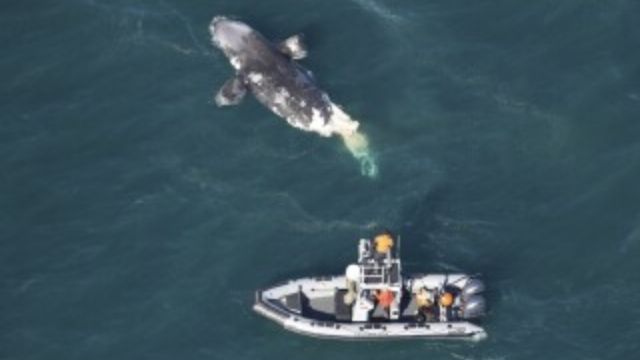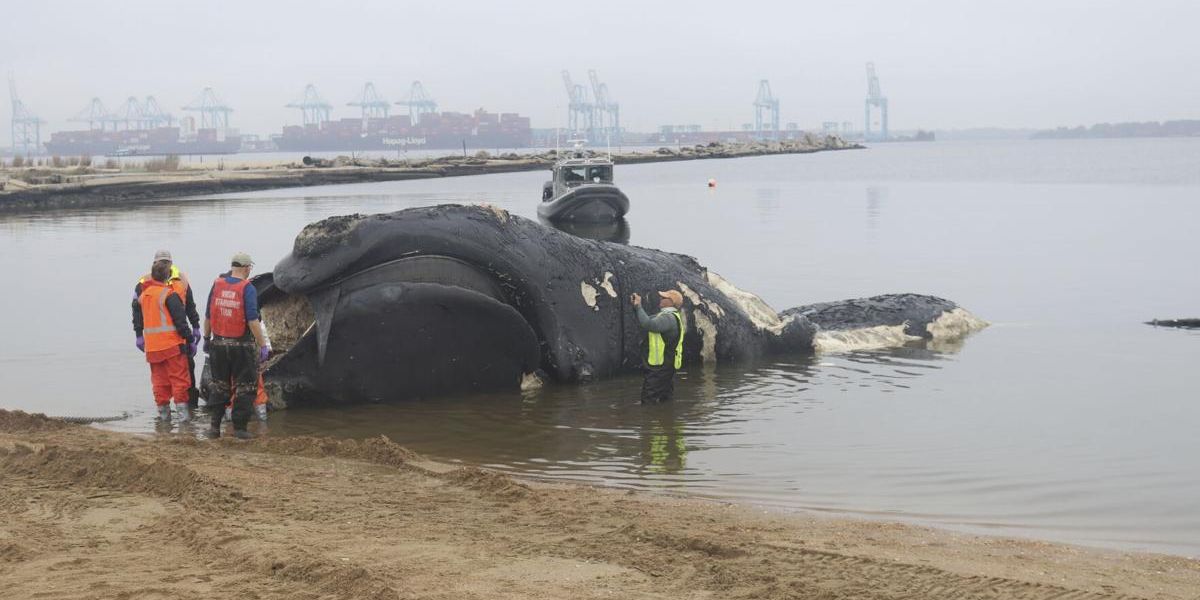A Big Heartbreaking News: Endangered Right Whale Dies in Ship Encounter on East Coast
Debarylife – This week, another North Atlantic right whale died in a collision with a ship, adding to the already dismal year for the critically endangered animal, according to federal authorities on Thursday.
Less than 360 members of this enormous species of whale exist, and they are at risk of being struck by ships and entangled in fishing gear. Recent years have seen a high whale death rate; this year, dozens have already perished off the coasts of Georgia and Massachusetts.
According to a news release from the National Oceanic and Atmospheric Administration, the most recent right whale to perish was discovered floating 50 miles (80 kilometers) offshore last Saturday, east of Back Bay National Wildlife Refuge in Virginia Beach. The organization stated that the whale was a mother who had given birth to her sixth calf this season.
According to the EPA, the whale had “catastrophic injuries with a dislocation of the whale’s spine” that “are consistent with blunt force trauma from a vessel strike before death,” according to preliminary necropsy findings released on Thursday.

The population of right whales declined by almost 25% between 2010 and 2020. The animal cannot survive such a sharp decline in its number, according to numerous environmental organizations.
“The survival of this species remains threatened by human impacts,” the NOAA stated in its statement.
SEE MORE: Georgia Inmate Faces Charges for Allegedly Mailing Bombs to Alaska and D.C.
Before the commercial whaling era, the whale population off the East Coast was nearly exterminated. There are alarmingly few reproductive females in the population, and they reproduce slowly.
According to NOAA, the whale’s youngster has not been seen in weeks and is not anticipated to survive without its mother.
To attempt and conserve the whales, environmental groups have urged for stricter laws governing commercial fishing and shipping. They have referenced studies showing that the shifting food supplies brought about by ocean warming are detrimental to whale populations.
Scientists have noted that because whales have strayed from protected maritime areas due to shifting food resources, they are now more susceptible. From their birthing sites between Georgia and Florida to their feeding areas off New England and Canada, whales travel annually.
The voyage is getting riskier and riskier. In an attempt to get the federal government to approve a new vessel speed regulation that environmental groups claim is essential to whale protection, several of them have filed lawsuits.
Sarah Sharp, an animal rescue veterinarian with the International Fund for Animal Welfare who helped with the necropsy, said, “The choice is simple: Vessels either slow down or the North Atlantic right whale goes extinct.” “Until something changes, how many more right whales will be sacrificed?”











